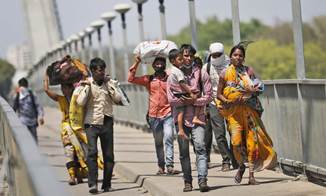Free Courses Sale ends Soon, Get It Now


Free Courses Sale ends Soon, Get It Now



Disclaimer: Copyright infringement not intended.
Context
Events that led to large scale Migration
Data on migration
Global Migration
Indian Migration: Current situation
The recent Myanmar Trafficking
Job losses of Kerala Migrants
Discrimination by Gulf Cooperation Countries exacerbated by Covid -19
No Migration Policy
An Asian-led campaign
Focus on women workers
Way Ahead
2021 Amendment to the Emigration Act
What does the 2021 Amendment to the Emigration Act entail?
Why has the 2021 bill been criticized?
Experts’ view on this
© 2024 iasgyan. All right reserved